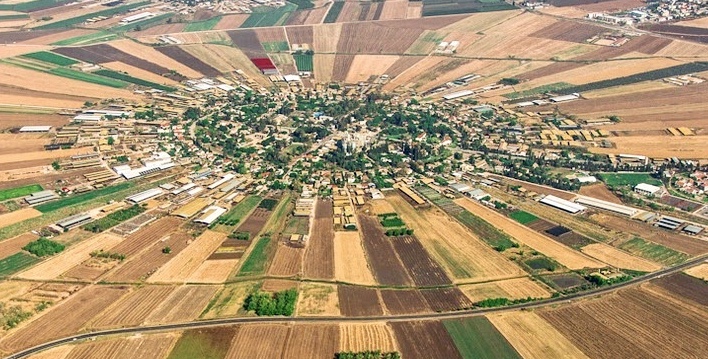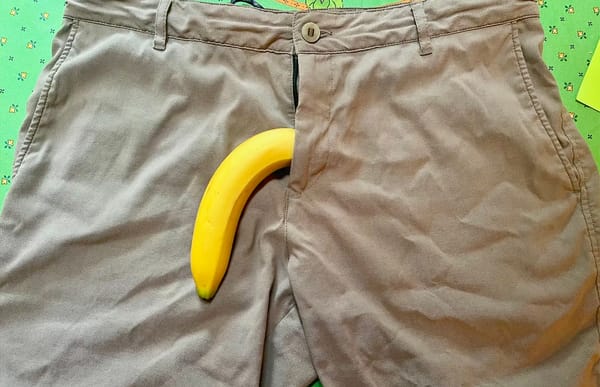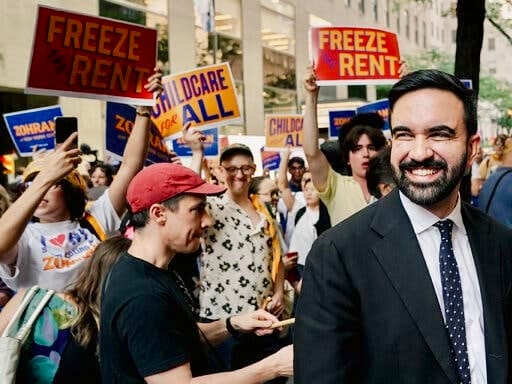The last time I was in Gaza
The last time I was in Gaza, it was unpleasant.
It was 1979, and I was in Israel on vacation, two years after I covered Egyptian President Anwar Sadat’s historic visit to Jerusalem.

A moshav in Israel (Photo: Amusing Planet)
Gaza was then under the Israeli occupation — it is not occupied today — that overthrew Egyptian occupation. Before that, Britain was the occupier.
I was visiting my brother-in-law, a Vietnam veteran who had been damaged by the war in ways that didn’t emerge until many years later, when he killed himself.
After he returned from war, David became a cop on Long Island because he always had an innate urge to help people.
We were pretty close, and he shared a lot with me, such as the petty graft of fellow officers who would eat while on duty and not expect to get a bill.
As a rookie, when he attempted to pay for lunch, his training sergeant told him to put his money away. “They like us eating here. They feel it keeps them safe.”
David felt he was being paid to keep people safe, and didn’t need that added benefit.
But, he went along. You cause trouble as a rookie and you don’t get to have a police career.
As far as I know, he was a good cop until a Friday night when he was on drunk patrol. His job was to pull over suspected drunk drivers and take them into custody if they failed a field sobriety test. He had pulled over one drunk on an expressway and was taking his information when another drunk driver slammed into the stopped car and David’s cruiser.
He was badly injured and after long hospitalization he couldn’t be a Long Island cop any longer.
At that point, fed up, seeking peace, he took his family to live on a moshav in the Negev desert not far from the Gaza border. A moshav is an agricultural cooperative, like a kibbutz, and I believe his was near where 260 music festival attendees were slaughtered by Hamas.
I was there in the fall and while the Negev is a desert, it was not hot, not sandy, very flat and rocky. A forbidding lunar landscape. There was no sound but the wind. Nothing could grow in that soil.
Israelis cultivated the soil, or built greenhouses and mastered hydroponic farming, growing vegetables in water (liquid nutrients). David’s specialty was tomatoes, huge, red tomatoes. These were grown for sale, along with many other vegetables, which ist how he moshav supported itself.
His small dun-colored home had thick concrete walls, designed to keep the summer heat out and the evening warmth in. Desert evenings can be cold.
The few windows were unusually small, I thought.
“They are gun ports,” David said, matter-of-factly.
He brought his wife, son and daughter to this area, knowing the danger from terrorists infiltrating from Gaza. Another son was born there, making him a sabra.
David’s Uzi rested against the wall in the corner of the living room. The kids knew not to touch it. Infiltration was rare, and the moshav posted lookouts.
One afternoon, as he was showing me his tomato plants, I glanced at the horizon and saw what seemed like a bug. The “bug” was an Israeli fighter jet less than 200 off the ground, zooming from the east to the west horizon in three seconds. It was almost out of sight before I heard its roar.
David smiled. “You get used to it.”
The moshav was founded by Israelis, but this one attracted a lot of Americans. It was a close-knit community, very much like a family, and, like a family, there were disputes. David would be considered a hard-liner, maybe because of his experience as a soldier and police officer.
One afternoon he was heading to Gaza City to do some shopping and asked me if I wanted to go.
Of course I did.
David slung his Uzi over his shoulder and got into his small car. I climbed into the passenger seat.
He was waved through the checkpoint at the entrance to Gaza because he had an Israeli license plate.
He parked and got out on the sidewalk. My immediate impression was Arizona in the 1880s.
The streets were barely paved and the sidewalks were more like a boardwalk. Nothing seemed modern, and nothing seemed clean. A layer of dust covered everything.
As he walked toward the store, an Arab was walking in the opposite direction. Wearing a grimace, David walked straight at the man, menacing him off the sidewalk and into the street.
I was shocked. What was this — 1953 Alabama?
This was not the David I knew.
“Why did you do that?”
“Fucking Arabs,” he said, as if that explained everything.
It didn’t, but a later conversation did.
This was six years after the Yom Kippur war that shocked Israel’s sense of security, and hardened attitudes toward Arabs. “The only thing they understand is strength,” David said.
Although his moshav and never been attacked, he was convinced that was because Israel controlled Gaza, and the moshav was prepared. The Israelis who lived there were always under threat, even if were just subconscious. It changes you.
David believed his action on the sidewalk portrayed strength, and a lack of fear.
I didn’t like it, but I did not live there. I was a Jew living in the safety of America. And David eventually returned to that safety, winding up in sunny, safe California, and becoming an agent for the Agriculture Department charged with keeping prohibited food products from entering the U.S.A.
No more drunk drivers, no more Uzis in the corner.



